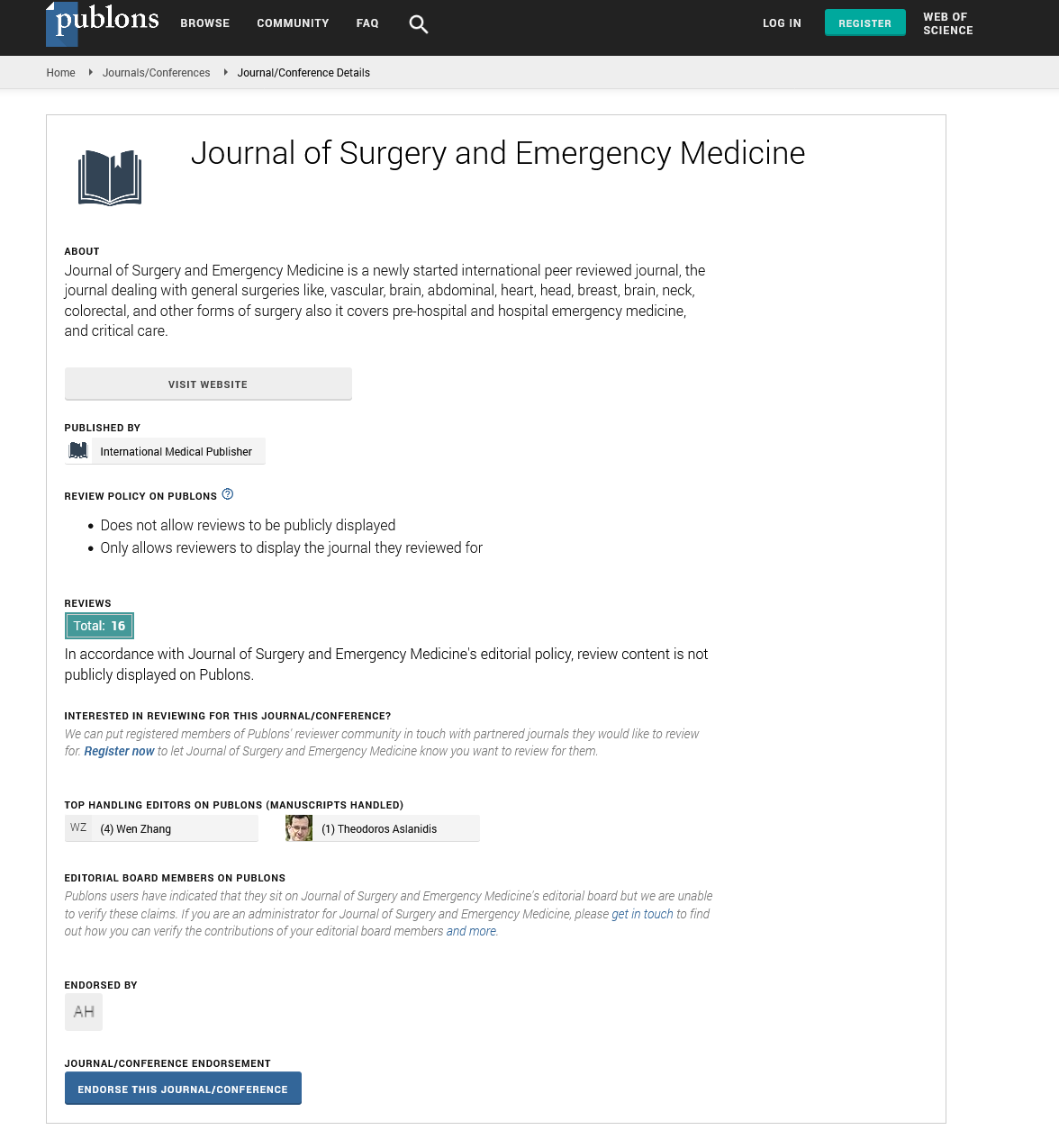Abstract
Laparoscopic surgery and surgical infections
Introduction: It has been observed that the metabolic response to surgical injury is less after laparoscopic surgery than after open surgery. However, the effect of laparoscopic surgery on surgical infection has not been given much attention in the surgical literature, even though it may decrease the incidence of infectious complications. The objective of this study was to assess the influence that laparoscopic surgery has on surgical infection and to highlight certain controversial aspects.AIM: Comparative Evaluation of Subgingival irrigation Role Of ORO-T Mouthwash and SMF Mouthwash as adjunct to scaling. A clinical comparative study.
Methods: A review of the literature was undertaken to examine the relationship between laparoscopic surgery and surgical infection. This was achieved primarily by using PubMed Medline as a source of material.
Results and conclusion: Laparoscopic surgery is associated with better preservation of the immune system than open surgery. This results in a decreased incidence of infectious complications. Although carbon dioxide pneumoperitoneum affects the peritoneal response to injury, it seems to have no harmful effect in terms of intra-abdominal infection. Nevertheless, at laparoscopic operation the virulence of intestinal micro-organisms should be recognized and, while knowing the advantages of minimally invasive surgery, the surgeon should consider the complexity of this technique. Furthermore, maintenance of laparoscopic instruments should be governed by the same norms as those used in open surgery; recommendations offered by the manufacturers should be respected.
Author(s): Gouda Ellabban
Abstract | Full-Text | PDF
Share This Article
Google Scholar citation report
Citations : 131
Journal of Surgery and Emergency Medicine received 131 citations as per Google Scholar report
Journal of Surgery and Emergency Medicine peer review process verified at publons
Abstracted/Indexed in
- Google Scholar
- Publons
Open Access Journals
- Aquaculture & Veterinary Science
- Chemistry & Chemical Sciences
- Clinical Sciences
- Engineering
- General Science
- Genetics & Molecular Biology
- Health Care & Nursing
- Immunology & Microbiology
- Materials Science
- Mathematics & Physics
- Medical Sciences
- Neurology & Psychiatry
- Oncology & Cancer Science
- Pharmaceutical Sciences
